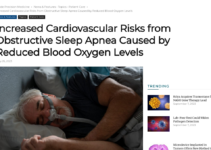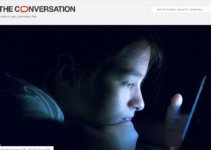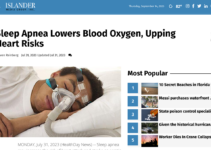In recent years, there has been a growing interest in understanding the relationship between sleep, physical activity, and cognitive function. Previous studies have primarily focused on examining these factors in isolation, but a new study suggests that regular physical activity may not always be sufficient to counter the long-term effects of lack of sleep on cognitive health.
The study, published in the journal Cortex, found that short sleep can diminish the cognitive benefits of physical activity. The researchers were surprised by this finding, as they had expected that regular physical activity would help mitigate the negative effects of sleep deprivation on cognitive function.
Lead author Dr. Bloomberg explained, “Previous studies examining how sleep and physical activity might combine to affect cognitive function have primarily been cross-sectional – only focusing on a snapshot in time – and we were surprised that regular physical activity may not always be sufficient to counter the long-term effects of lack of sleep on cognitive health.”
The findings highlight the importance of targeting both positive coping strategies and sleep quality when enduring periods of chronic stress. The researchers aimed to test the theory that coping strategies supported positive mental health outcomes, which could be strengthened by high-quality sleep.
Another study questioned the claims that blue-light filtering lenses, often called ‘blue-blocking' lenses, reduce digital eye strain. While digital devices emit some blue light, the study found that blue-light filtering lenses are unlikely to reduce eye strain associated with computer use in the short term.
Associate Professor Downie, one of the study's authors, stated, “We found there may be no short-term advantages with using blue-light filtering spectacle lenses to reduce eye strain associated with computer use, compared to non-blue-light filtering lenses.”
The study's findings have implications for those who rely on digital devices for extended periods.[0] It suggests that blue-light filtering lenses may not provide the expected benefits in reducing eye strain.
In the context of COVID-19, disturbed sleep patterns have been found to be a driver of breathlessness in patients hospitalized with the virus. A major UK study discovered that 62% of participants who had been admitted to the hospital for COVID-19 experienced sleep disruption, which was likely to persist for at least 12 months.
The study also highlighted the association between sleep disruption, breathlessness, anxiety, and muscle weakness. These findings provide valuable insights into the long-term effects of COVID-19 on sleep and respiratory health.
Furthermore, a new study has shown that increased cardiovascular risks from obstructive sleep apnea are caused by reduced blood oxygen levels. The association between sleep apnea and the risk of developing cardiovascular conditions is well established, but this study sheds light on the underlying mechanism.
The researchers noted that the findings have the potential to change how sleep apnea is assessed and treated. They suggest that treating sleep apnea could help prevent future cardiovascular outcomes.
In a study involving nearly 9,000 people over the age of 50, it was found that people with more frequent, higher-intensity physical activity who slept less than six hours a night had faster overall cognitive decline than short sleepers who exercised infrequently. This study adds to the growing body of evidence that highlights the importance of both sleep and physical activity for cognitive function.
The researchers found that sleeping between six and eight hours per night and engaging in higher levels of physical activity were linked to better cognitive function. The study also found that those who slept less than six hours a day but were physically active had roughly the same cognitive decline as those who had a normal amount of sleep but were not physically active.
These findings emphasize the need for individuals to prioritize both sleep and physical activity for optimal cognitive health as they age. It suggests that a combination of sufficient sleep and regular physical activity may be key to maintaining cognitive function in older adults.
In conclusion, the relationship between sleep, physical activity, and cognitive function is complex and multifaceted. While regular physical activity is generally beneficial for cognitive health, it may not always be sufficient to counter the long-term effects of lack of sleep. The findings from these studies highlight the importance of prioritizing both sleep and physical activity for optimal cognitive function and overall well-being. Further research is needed to fully understand the mechanisms underlying these relationships and to develop targeted interventions for improving sleep and cognitive health.
0. “Is it better to sleep in instead of getting in a morning workout?” www.10news.com, 5 Sep. 2023, https://www.10news.com/is-it-better-to-sleep-in-instead-of-getting-in-a-morning-workout





